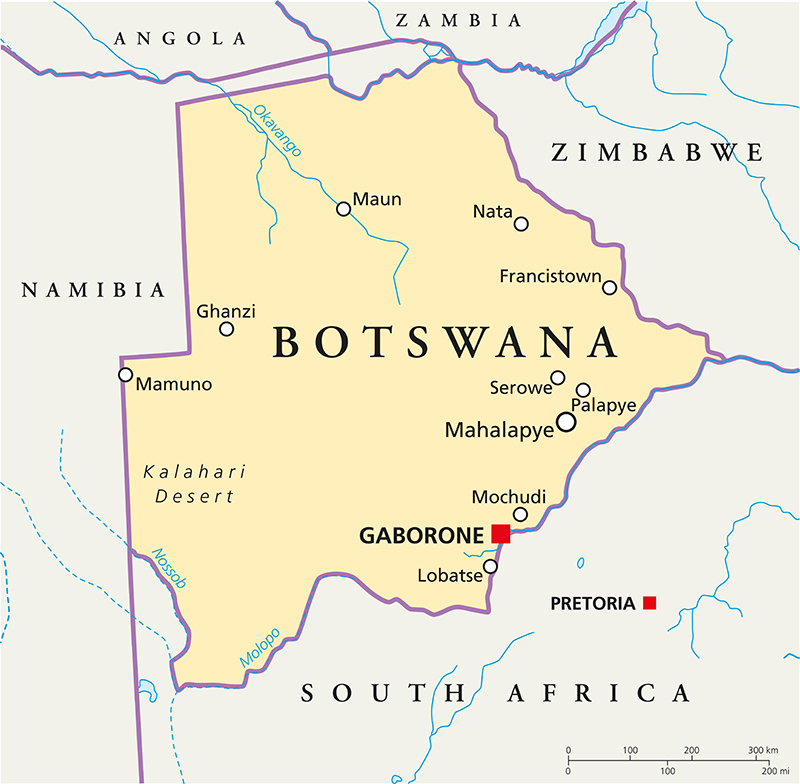
11 December 2012–In the week of International Human Rights Day, marked on 10 December, the Botswana Network on Ethics, Law and HIV/AIDS (BONELA), the AIDS and Rights Alliance for Southern Africa (ARASA) and the Southern Africa Litigation Centre (SALC) call for the removal of draconian provisions in the Botswana Public Health Bill, which is being debated in the parliament and has passed to the Committee stage yesterday.
“Although we are disappointed that parliament has voted in favour of passing the Bill in its current form yesterday, we call on them to urgently review the bill to remove provisions, which contradict the country’s Constitution and will violate the rights of the countries citizens,” explained Uyapo Ndadi, Director of BONELA. “Amendments to the Bill may be made at the Committee stage and our hope is that Parliament will remove the draconian parts of the Bill at this stage”.
The regressive provisions include Clauses 104 (3) b and 105 (2) b, which provide for mandatory testing of anyone by medical practitioners as well as for testing of clients without their knowledge. Under Clause 109 (3), clients due for surgical or dental procedure can be required to undergo an HIV test before the procedure. In addition, doctors will be forced to report HIV cases to Director of Health Services (along with TB, smallpox, cholera and yellow fever).
Further provisions in the Bill, which are counter-productive, discriminatory, unconstitutional and regressive, include forcing people living with HIV to tell whomsoever they have sexual relations with of their HIV status, and empowering doctors to tell one’s sexual partner of their HIV status without their consent. Moreover, Clause 116 limits the right to freedom of movement for people living with HIV as they may be detained and isolated if there is evidence that they are likely to infect other persons. The Bill also takes away parental consent and guardianship and places them in the hands of doctors.
“These provisions go against all regional and international human rights principles and instruments as well as Botswana’s Bill of Rights,” explained Michaela Clayton, Director of ARASA. “They also reinforce the draconian nature of the previous Botswana Public Health Act, which criminalises individuals based on their behaviour. The consequences of such regressive provisions have included an increase in multi-drug resistant TB (MDR-TB) cases in certain regions in Botswana, as well as people shying away from essential services for fear of being incarcerated because of having TB. This has resulted in an added burden on Botswana’s public health system”.
The progressive provisions of the Bill, which would allow any person from the age of 16 to test for HIV and prohibit pre-employment HIV testing, are overshadowed by the problematic provisions. “While some of the contents in this Bill are progressive, the problematic areas will derail the good intentions that the Bill tries to achieve as well the gains the country has already made,” stated Priti Patel, Deputy Director of SALC.
Recently, UNAIDS reported that Botswana is one of several low and middle income countries, which have reduced their HIV incidence rates among adults by more than 50% since 2001. Furthermore, the country decreased the rate of people living with HIV dying from causes related to the disease by more than 50% since 2005.
“Botswana’s gains in the AIDS response are threatened by these misguided laws and punitive policies, which will present additional barriers to reaching marginalised and under-served populations,” explained Clayton. “We are not going to make real progress in reaching the end of AIDS and other public health challenges unless these laws and policies are addressed.”
BONELA, ARASA and SALC are also concerned by the limited consultation in the drafting of the bill. “There is really no need to rush the bill when relevant stakeholders have not been consulted and there are serious concerns with parts of the Bill,” stated Ndadi. “The lack of a comprehensive public consultation process involving all relevant stakeholders such as civil society organisations and the Botswana Health Professions Council, limits the ability of this Bill to achieve a rights-based public health response. We therefore call for participatory democracy by halting debate in parliament and engaging in a consultative process to refine the Bill.”



